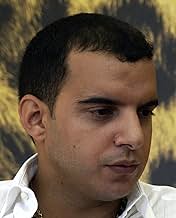Life in the post 9/11 world is very complicated. During any time of war, the concept of friends and enemies is always at the forefront, and, although there may at times be some confusion over who fits where, for the most part in wartime friends and enemies are pretty well defined. That easy assumption is thrown out the window by essentially two things - the "war on terrorism" in which the enemy can be defined only by their thoughts rather than by their citizenship and by the complicated demographic nature of the world today where people from all over the world live together, work together and share citizenship with each other. The paranoia that easily grips a society after a horrendous attack - witness the incarceration of thousands of loyal Canadian and American citizens of Japanese descent after the attack on Pearl Harbour - can easily get out of hand. I can remember sitting in a University history course in the mid 1980's when the subject of Japanese detention was being lectured about, and our Professor (a very well known and highly respected first-rate historian) said that we consider such a thing terrible, but that if any such thing occurred again we would immediately start to identify who we thought the enemy was and deal with them - whether they really were the enemy or not. How prophetic.
In "Extraordinary Rendition" Zaafir (Omar Berdouni) is a teacher at some level (university I would guess.) He upsets a couple of students by suggesting that there's not much difference between terrorists and freedom fighters, and that democracy is often born out of violence. Those are hardly radical concepts. I've heard it said many times that if the Americans had lost the Revolutionary War, George Washington would today be considered a terrorist. As it is, the United States regards him as a hero because he led them in a violent struggle for independence. These students apparently report him; authorities investigate him and build a case based largely on assumptions and hearsay without any solid evidence, and then pack him off to some unnamed country where he can be tortured into a confession.
Although this is a British film, any Canadian will recognize the story of Maher Arar. Arar was a Canadian citizen born in Syria who for some reason attracted the attention of Canadian and American security officials. On a visit to the U.S. Arar was arrested, accused of being a terrorist and deported - not to Canada, where he was a citizen, but to Syria, where he was born. Why? Because in Syria he could be tortured and in Canada he couldn't be. That's extraordinary rendition.
The basic story is chillingly told here, showing the happiness of Zaafir's life before all this happened, the horrendous experience he had in captivity and the devastating impact the experience had on him afterward. It's not a spy caper or a thriller. It's a very cold (in some ways) account of what can - and does - happen in today's world. There's really no resolution to the story in the end. We don't know whether Zaafir ever managed to get his life back together. I'm sure that was deliberate. The movie is supposed to leave the viewer thinking and struggling with the issues involved. Benjamin Franklin said "they that can give up essential liberty to obtain a little temporary safety deserve neither liberty nor safety." And Edmund Burke said "the only thing necessary for the triumph of evil is for good men to do nothing." I think we need to relearn those lessons.
The only thing difficult about this movie is that some of it is spoken in rather hushed tones that make some of the dialogue difficult to follow, but the dialogue isn't really all that necessary to follow the story. The pictures say it all. 9/10





























